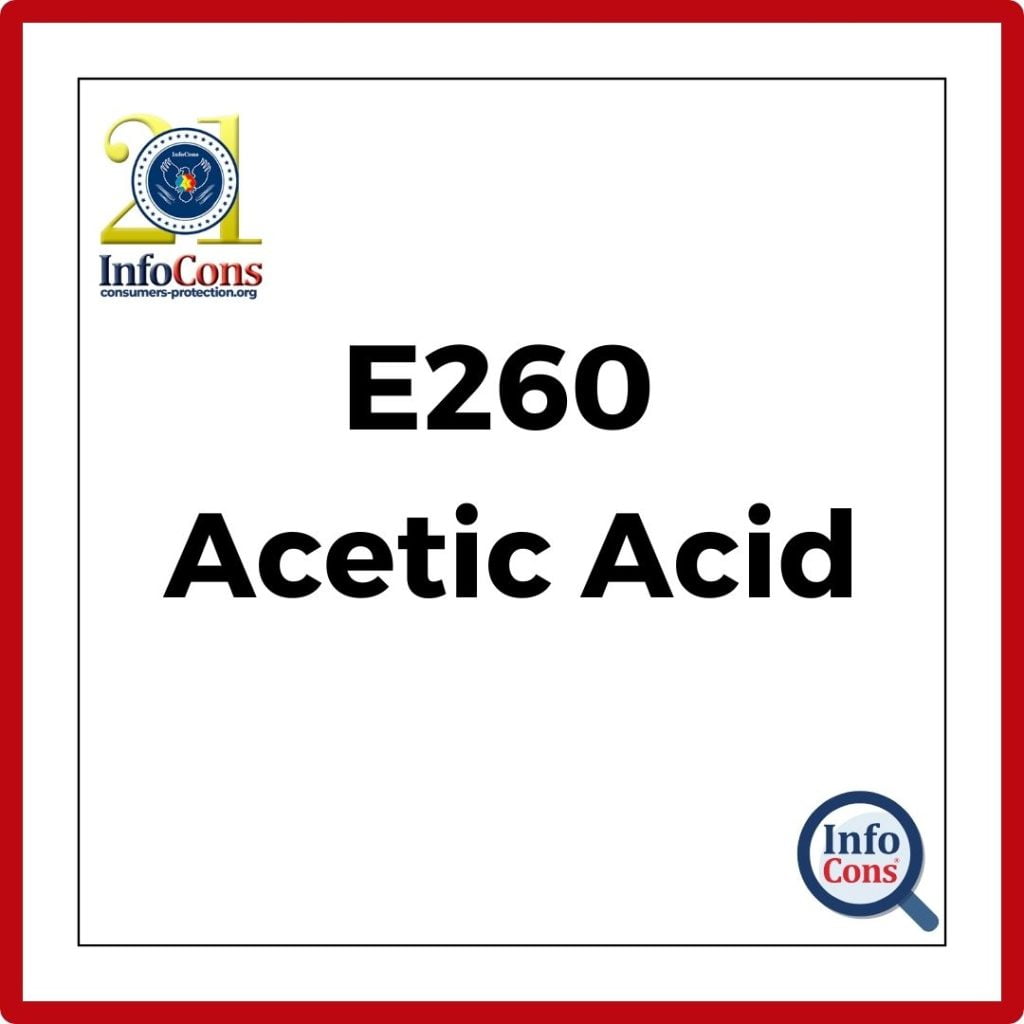What is Food Additive E 260 ?
E260, commonly known as acetic acid, plays a vital role in various culinary and preservation processes. Acetic acid is a simple organic compound with the chemical formula CH₃COOH. It is the main component of vinegar, giving it its characteristic sour taste and pungent smell. Vinegar typically contains 4-8% acetic acid by volume.
Acetic acid can be produced both naturally and synthetically. Natural production occurs through a fermentation process in which ethanol is oxidized by Acetobacter bacteria to produce acetic acid. This method is commonly used to produce vinegar. Synthetic production involves a chemical reaction between methanol and carbon monoxide in the presence of a catalyst to form acetic acid.
Do You Know What Food Additives are ? InfoCons Consumer Protection Informs You !
What is the recommended daily dose ?
E260 is generally recognized as safe by regulatory bodies for food additives and is approved for use in foods by the European Food Safety Authority (EFSA).
Maximum daily dose: The allowable daily intake is not limited.
Excessive consumption of acetic acid can lead to adverse effects such as dental erosion, throat irritation, and digestive problems.
In which products is the E260 additive found ? InfoCons Consumer Protection informs you !
- Preservative: The antimicrobial properties of acetic acid make it an effective preservative. It inhibits the growth of bacteria and fungi, thereby extending the shelf life of various food products, including pickles, sauces, and condiments.
- Flavor Enhancer: The distinct flavor of acetic acid enhances the taste of many dishes. It is a key ingredient in sauces, marinades, and vinegar-based dressings.
- pH Regulator: Acetic acid helps maintain the desired level of acidity in food products, which can affect flavor, texture, and food safety. It is often used in baking, dairy products, and preserves.
- Leavening Agent: In baking, acetic acid reacts with baking soda (E500 (i)), which helps the dough rise.
Read also : Bisphenol A and phthalates in food packaging . InfoCons Consumer Protection Informs You !
Contraindications and Benefits
It does not produce side effects except in rare cases of vinegar intolerance. It is not allowed in foods intended for infants and young children.
Benefits of E260
- Preservation: By preventing microbial growth, E260 helps keep food safe and extends its shelf life.
- Flavor: Enhances the taste of foods.
- Health Benefits: Vinegar, which contains acetic acid, has been associated with various health benefits, including blood sugar control, weight management, and improved digestion.
In conclusion, E260, or acetic acid, is a valuable food additive with numerous applications in preservation, flavor enhancement, and pH regulation. While it offers several benefits, it is essential to use it responsibly to avoid potential health risks. As with all food additives, understanding their properties and adhering to safety regulations ensures their positive contribution to the culinary world.
Download the InfoCons application !
Look for products that have a cleaner label or use natural additives. By installing Consumer Protection InfoCons App and scanning the barcodes of food products, you can find out the number and type of food additives they contain.
Author – Cosmina Nițu
Master in Nutrition – Infant and new born nutrition
Sources:
https://www.efsa.europa.eu/en/ – European Food Safety Authority (EFSA)
InfoCons – European Organization for Consumers Protection and Promotion of Programs and Strategies , a full member of the World Organization Consumers International, founding member of the Federation of Consumer Associations, and member of ANEC.
